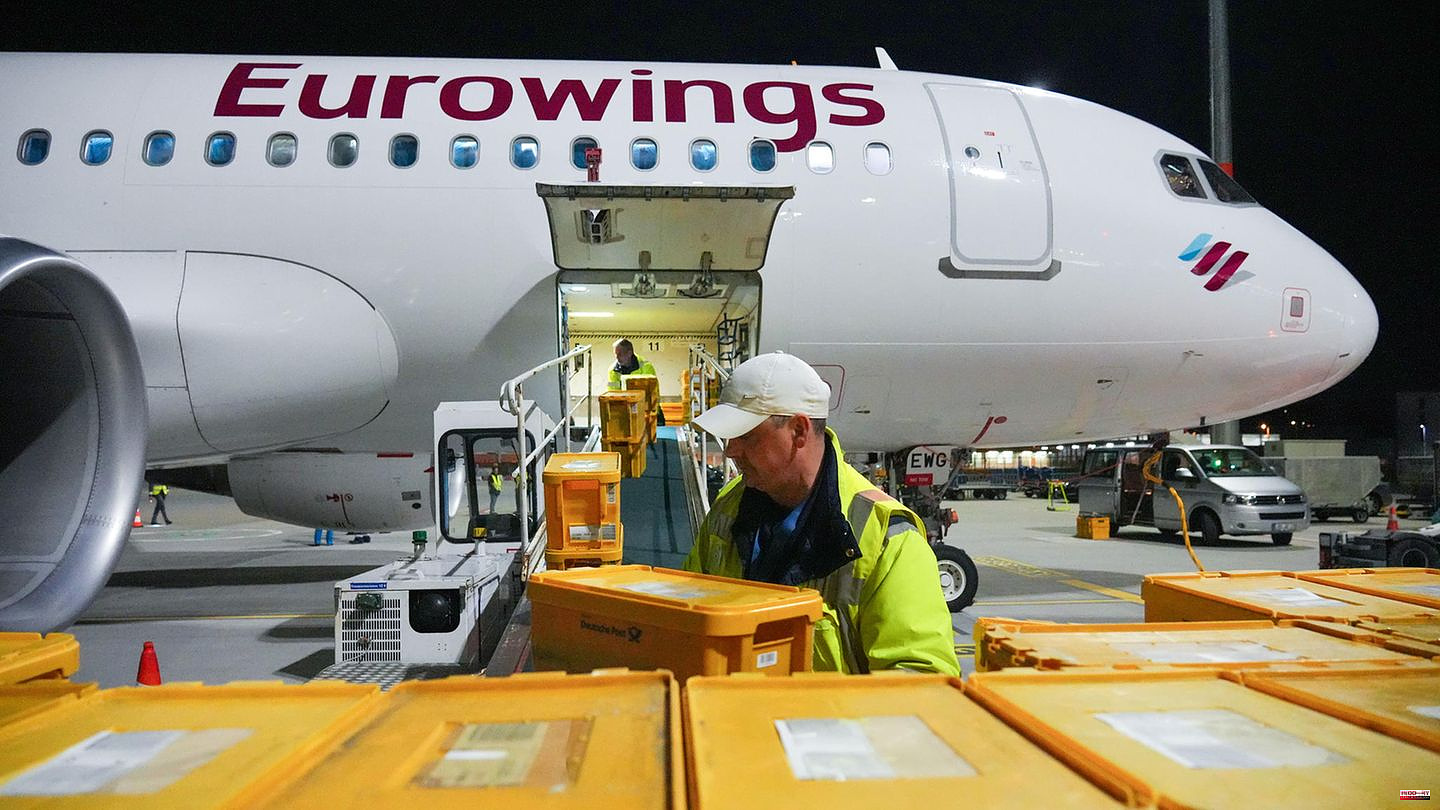A piece of postal history comes to an end: After more than 62 years, Deutsche Post has stopped sending letters by plane within Germany. On Thursday night, the last plane took off from Berlin shortly after midnight and flew to Stuttgart. Shortly before, other planes had taken off from Hanover, Munich and Stuttgart. A total of around 1.5 million letters weighing 53 tons were on board the six machines. This corresponds to around three percent of the volume of letters that were recently transported by the post office in Germany every day.
In the future, the postal service will forego letter transport aircraft in order to reduce costs and have a better climate footprint. According to the company, CO2 emissions per letter are reduced by over 80 percent over land.
“We are ending the era of overnight letter flights with a laughing and a crying eye,” said the responsible postal manager Marc Hitschfeld. "On the one hand, the transport of letters by plane within Germany can no longer be justified in times of climate change, also because there is no longer the same urgency with letters as there was decades ago." In this respect, the end of German airmail is good news for the environment, says Hitschfeld. On the other hand, a piece of postal history has just come to an end.
The so-called night airmail network officially went into operation on September 1, 1961, after the then post minister Richard Stücklen (CDU) signed a contract with Lufthansa. This should significantly speed up the delivery of letters over long distances. Over the years, air transport expanded. In 1996, there were 26 aircraft flying to 45 destinations - at that time Frankfurt was still serving as a hub. Letters weighing an average of 430 tons each were transported five nights a week.
After that, the demand for letters fell significantly due to digitalization and people's changing communication habits. As a result, the number of flights was gradually reduced. Lufthansa got out of the business in 2008, and recently there were only four aircraft from Tui fly and two from Eurowings. They were normal passenger planes that were filled with yellow mail boxes to transport letters. The containers went into the belly of the plane, on the seats and in the hand luggage storage space. Only letters were loaded and no parcels.
The post office is still legally obliged to deliver 80 percent of the letters posted to the recipient on the next working day. Because of this time pressure, they continued to rely on air transport even after the turn of the millennium, even though many people had long since resorted to emails, cell phone messages and chats instead of letters for quick written communication. The outdated postal law is currently being comprehensively reformed. Although the amendment has not yet been passed, there is political consensus to ease the time pressure on the postal service. The company therefore no longer needs the flights and is already drawing a line in the sand.
Some recipients are likely to notice the consequences of the end of the night flight: Anyone expecting letters that were posted in distant regions of Germany might need a little more patience. The average transport time for letters will be slightly longer due to the end of transport flights - the post office does not say how much.
However, the post office will not be able to do its mail business entirely without airplanes in the future: the company will continue to rely on airmail to some extent when writing abroad. These small quantities are carried as additional cargo in the belly of regular passenger aircraft.







